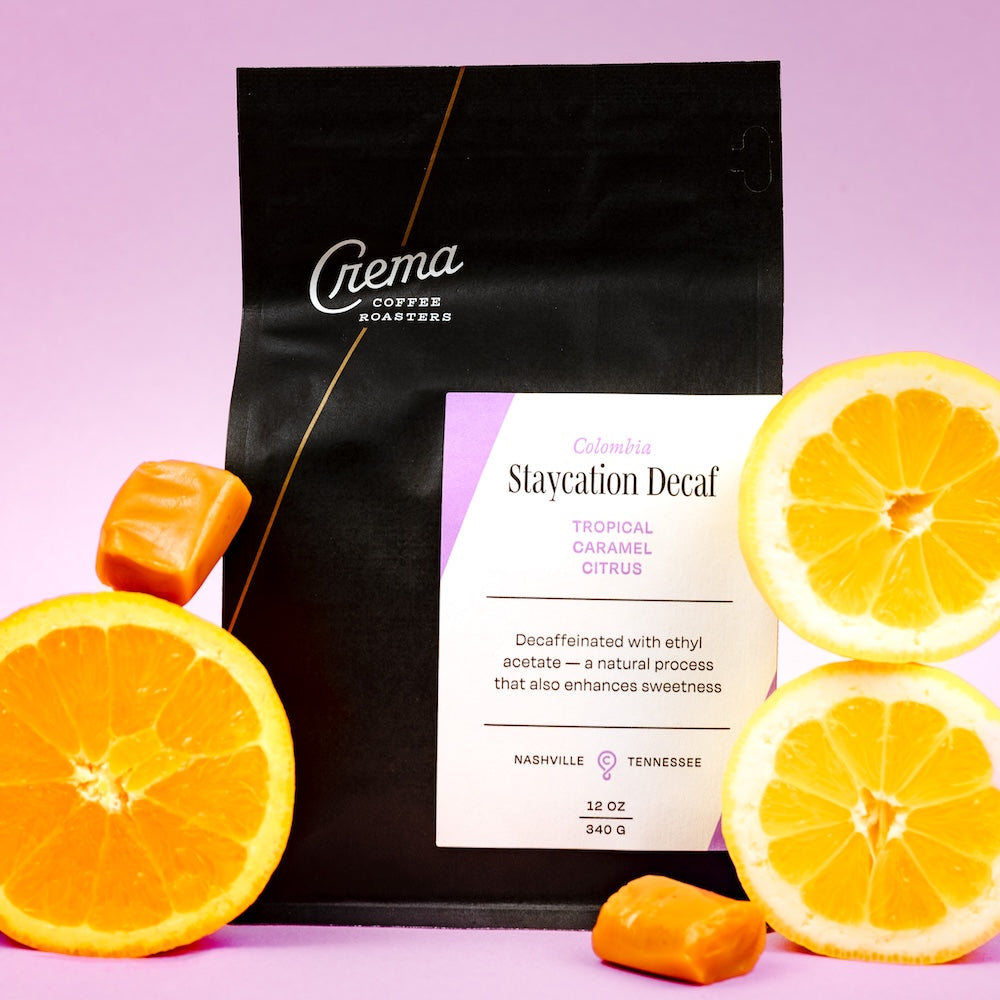Yemeni coffee exporters Mokhtar Alkhanshali and Andrew Nicholson couldn’t have known what would befall them on their voyage to Seattle for the SCAA Expo in April of last year. Upon attempting to leave Yemen’s capitol city of Sana’a, the two friends found themselves in the midst of an airstrike, unable to fly anywhere. Determined to present their coffees on the industry’s largest stage, Alkhanshali and Nicholson committed to drive seven hours to the city of Mokka, where they then convinced a fishing boat captain to tote them and 100 kilos of coffee across the Red Sea; all this, only to be detained by the Djibouti national coast guard. After Djibouti Port Authorities contacted the U.S. Embassy, the travelers received the go-ahead and were able to catch a 3 A.M. flight from Kenya to the U.S.
Meanwhile, the bold excursion had generated no small buzz on social media - and eventually caught the attention of big news like Al Jazeera and NPR – so that once the pair made it to the conference, they were surprised to present at what veteran coffee consultant Andrew Hetzel said was probably “the most well-attended cupping event in SCAA history.”
For Nicholson, an American living in Yemen, such tales truly come with the territory. Since March of 2015 Yemen has been embroiled in a civil war, apart from which Al Qaeda and the local Islamic State have carried out their own attacks. From airstrikes and IEDs to a serious lack of water, this country has become an increasingly challenging place to produce anything, much less coffee. The irony is, Yemen has a coffee heritage of over 1,000 years, yet in many ways remains more of a frontier than most other coffee producing nations. This incongruence isn’t lost on Andrew Nicholson, and he’s determined to bring Yemen to the forefront of the specialty coffee scene. But why choose to build a coffee mill in Yemen when there are other more arable, not to mention peaceful, lands to consider? We Skyped with Nicholson to discuss some of the coffees we’re releasing this spring, and asked him just that. “That’s a great question,” he laughed. Originally from Louisiana, Nicholson is a sunny type of guy who, when talking about coffee, verges on jolly. His eagerness to discuss Yemeni coffee and the people who produce it bespeaks the passion that compelled him to establish Yemen’s only specialty dry mill in the first place.

It was actually Sean Marshall of Southside Espresso who first put it to Nicholson to source Yemeni coffee back in 2008. Marshall was looking for a more hands-on way to source the coffee, to keep it from changing hands and therefore mixing with coffees from elsewhere (sometimes even other countries) – a common process that leads to frustrating inconsistencies. He thought of his longtime friend, who was then working as a business consultant in the Arabian Peninsula and was fluent in Arabic; but still – it was a long shot. In spite of the rapid growth of third wave coffee, the seemingly insurmountable issues surrounding Yemen had left its coffee community largely under explored. So when Marshall proffered the idea that Nicholson source from Yemen personally, it was something like a joke.
“We actually laughed about the idea of it,” Nicholson said. “I went to bed thinking, ‘Man, that’s funny,’ but when I woke up the next morning I thought, ‘You know what? I want to do that.’” Nicholson’s sort of chronic optimism combined with a natural affinity for Yemeni culture, and he got on a plane. He spent the next two months sampling coffees from the breathtaking mountain terraces of rural Yemen, and eventually brought sample cherries back to the States in a suitcase, where he modified a wheat grinder to hull the fruit in his own kitchen. He and Marshall, fascinated by what they tasted, figured they had a good system in place – Nicholson would go to Yemen once a year and collect samples for Southside Coffee and anyone else who was interested. It wasn’t until they became familiar with the suffering coffee sector in Yemen, reading USAID reports and talking with farmers, that they began to consider establishing a mill.
“There was really no one serving as a bridge between the Yemen coffee market and the international specialty coffee market,” Nicholson said. “We thought we could start that process and hopefully encourage others to do the same thing and see a big change.”
With two additional years of research and fundraising, the friends co-founded Rayyan Mill in 2011. Since then, Nicholson and his cofounders have been working hard to increase bean quality and reverse a national market in rapid decline. Progress at Rayyan is a slow and steadily moving thing. Tradition can be tender and requires a careful touch, and no appreciates this more than Nicholson. “There’s always an existing system to get the coffee to market, and we don’t try to change that system. We just try to come in and find out how we can add value at different points in the chain,” he said. “We know the farmer, and we say, ‘We don’t want to cut this guy out. We don’t want to damage his income, because he’s from this community and this is what he does.”


So they may ask him to put the coffee in special storage bags, monitor moisture content according to their research, bring coffee from only one farmer; and if he’s willing to do that, the deal is a success: the farmer is better compensated and Rayyan gets a higher quality product. Still, Nicholson doesn’t want to push foreign methods on a people who have been growing and picking for centuries. He hopes locals will come to trust him enough to seek his input. Not long after he began sourcing in Yemen he asked pickers to harvest only red cherries and pass over the smaller, less ripe ones. Those who did found their baskets actually weighed more than when mixed with yellow or green cherries and were up to 15% more profitable for them individually.
Over time small changes like this amount to a massive effort that is necessary for a mill that produces exquisite offerings like that of Al Ghayoul, one of our recent releases at CREMA. Grown by 20 smallholder farmers in the micro region of Hajja, this coffee was plucked from 1600 to 1700 meters above sea level. High elevation and infrequent rains permit only uniquely adapted varietals to grow, and slowly. This is, perhaps, what makes Yemen coffee unlike any other in the world. Nicholson touts that unique combinations of fruit and spice are inherent in nearly all Yemen coffees, and the Al Ghayoul is no exception. This coffee is swimming with notes of strawberries and black tea, and, according to Andrew, makes an incomparable iced Chemex. He believes productions like this (along with Valley of Truth and Matari) can distinguish Yemen among the specialty coffee landscape, and eventually revitalize coffee as a national export.
“People don’t think of coffee as a way to help the Yemen economy, but I do. That’s one of the reasons we started this,” he said. “We love good coffee, but we want to do something good at the same time.”


After Alkhanshali and Nicholson’s voyage to Seattle made national headlines, the head of economic development between the US and Yemen reached out to Nicholson and invited him to speak with the US Chamber of Commerce about Yemen’s coffee sector. Ultimately, the USAID and the World Bank are looking to aid the development of Yemen’s highest value exports, including coffee, to spur economic growth and improve local incomes. They need someone who can connect rural farmers with the private sector and bring the coffee to an international market.
They need someone like Nicholson. Unfortunately, because of the war, the deployment of these funds has been put on hold and will stay there for the foreseeable future, which is to say, until the fighting is over. However frustrating this is to coffee lovers, or to humanitarians, or even the people of Yemen, Nicholson remains undeterred in the work that is already transforming the identity of Yemeni coffee. When the time comes for a big push to improve the agricultural market there, he plans to be ready.
CREMA is honored to participate in that process, and we look forward to sharing these three deliciously intricate coffees from Rayyan Mill with Nashville and beyond. These vibrant, complex coffees artfully mirror the culture that bears them, and therein lie their best qualities.
← Older post Newer post →







